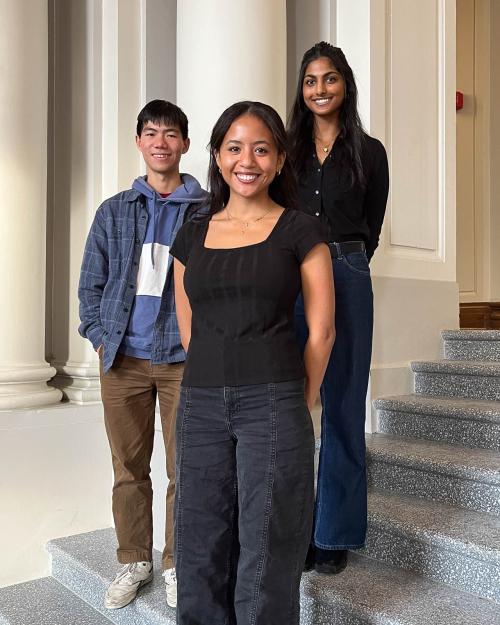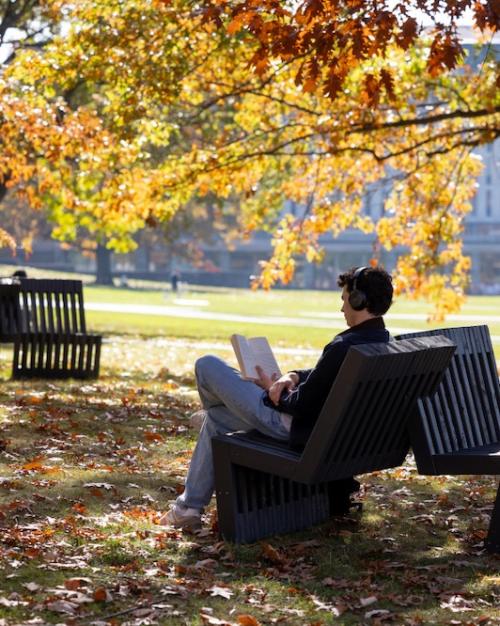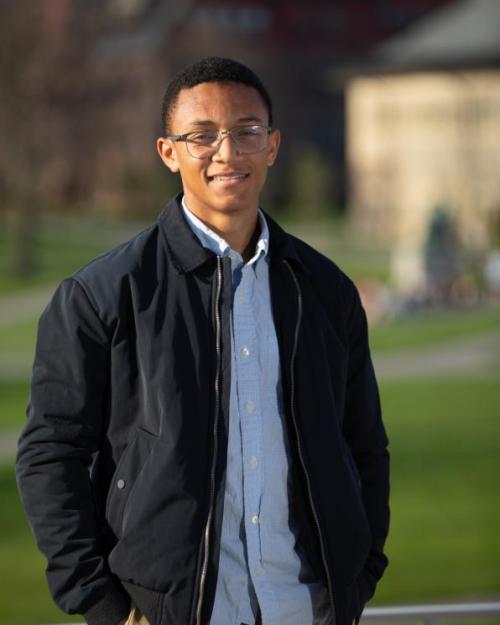Cosimo L. Fabrizio
Economics and Government
South Orange, N.J.
What is your main extracurricular activity and why is it important to you?
My main extracurricular activities at Cornell have been Kappa Alpha Pi and Delta Sigma Pi, which are on-campus pre-professional law and business organizations respectively. I joined both of these organizations my freshman year and they’ve both introduced me to some of my closest friends on campus. KAPi and DSP play an important role in developing professional skills for underclassmen that you might not get from your courses alone and, as a result, working within these student groups to try and ensure that pre-professional resources were available to other people like me, who don’t come from families of lawyers, consultants and investment bankers, was an important piece of my Cornell experience.
What Cornell memory do you treasure the most?
My favorite memory at Cornell was being able to play with my mentor, Wynton Marsalis, on stage this past fall as part of his final A.D. White residency concert. The A.D. White program at Cornell brings world-class professionals from a variety of fields onto campus for a couple of weeks every year for a term of four years. Mr. Marsalis’s first performance with the Cornell Jazz program was shortly after I had bumped into Professor Paul Merril (director of CU Jazz programs) on my first Cornell tour. When I came back up to Ithaca and watched the performance at Bailey Hall, I remember thinking that, if I got into Cornell, I would want to perform on that stage one day. This fall, while I was in between taking practice LSATs, and learning Italian to fulfill my language requirement, Mr. Marsalis called me and told me to come to rehearsal with him and his small group. The next day I got to perform with him at Bailey Hall, just as I had hoped to as a senior in high school. It was a full-circle moment for me that I will cherish forever.
What have you accomplished as a Cornell student that you are most proud of?
During my sophomore fall, I was fortunate enough to begin conducting research under Professor Joseph Margulies and Professor Jamila Michener. The research focused on better understanding the conditions formerly incarcerated people face when they return to Ithaca, with the hopes of improving service provision to these individuals. After the bulk of the research was completed, I, along with a team of Cornell students and Ithaca community leaders, with the support of our professors, worked to lobby the Tompkins County government to allocate funds to support a new, temporary housing program downtown. The “Sunflower Houses” now provide new, high-quality apartments to formerly incarcerated individuals for a well-subsidized rate, giving formerly incarcerated individuals stability and the opportunity to focus on the many other things one has to deal with post-incarceration. While the efficacy of the program is under review, the program seems to be reaffirming something we know to be true: giving human beings a clean, safe, affordable place to live after being released is a critical component to successful community reentry.
Who or what influenced your Cornell education the most? How or why?
My parents both had a large influence on my Cornell education, but particularly my Ma. My Ma came to the U.S. from Grenada when she was 16. She worked like crazy to ensure that I would be able to go to a good school and once I got to Cornell, she was my biggest cheerleader. She never got mad at me for struggling or not getting a perfect score. Instead, she motivated me by reminding me who I am and what I am capable of. She encouraged me to take advantage of any opportunity that came my way and to never feel that because my background was different from a lot of my fellow students, I was less worthy. My Ma is my inspiration and my coach, and she is one of the biggest reasons I was able to be successful at Cornell these past four years.






